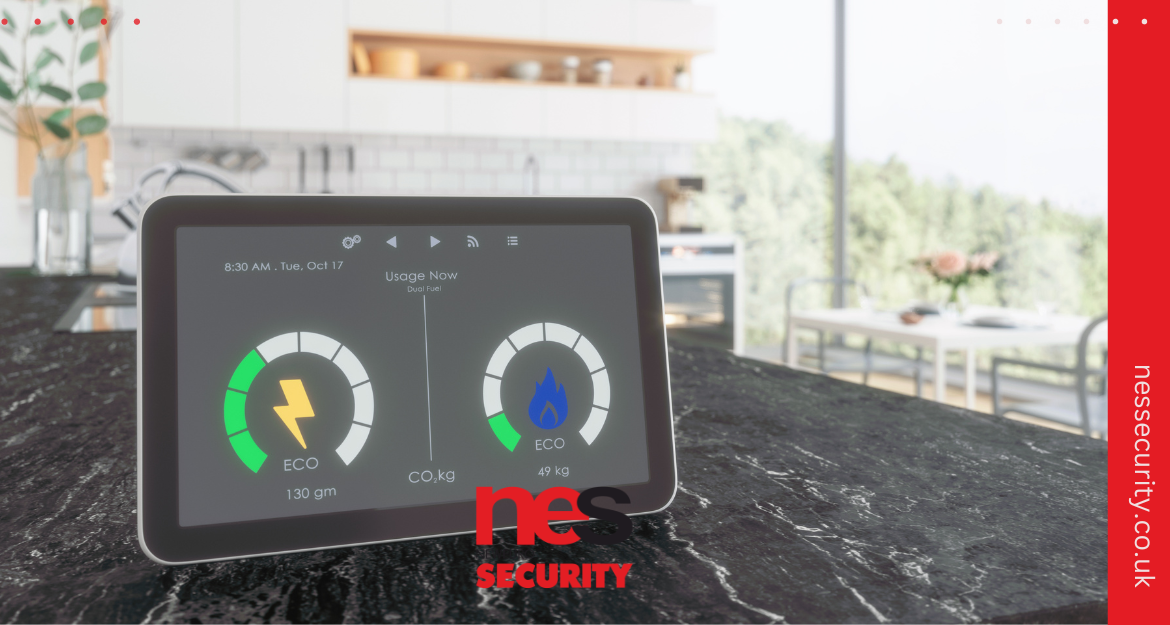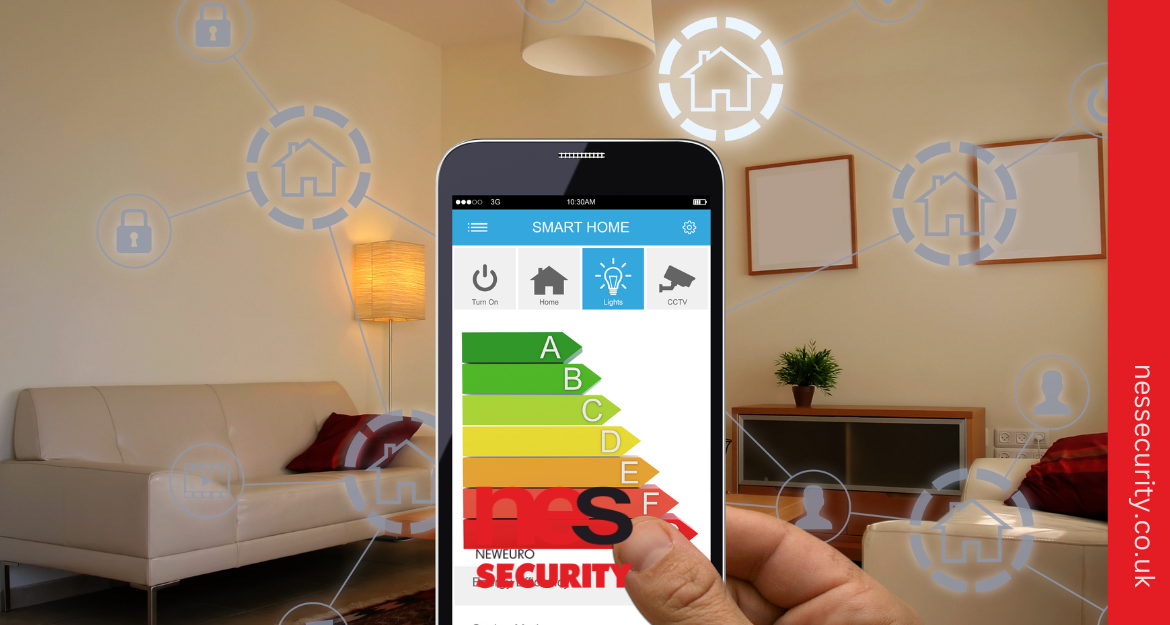Imagine a home that not only caters to your comfort and convenience but also helps you save money and reduce your environmental footprint. Welcome to the world of energy management in smart homes. With the integration of smart technologies, our homes have the power to revolutionise energy efficiency, optimise energy usage, and promote sustainable living. In this article, we will explore the benefits of energy management in smart homes, from cost savings to environmental preservation, and how these advancements can shape the future of our homes.
The Power of Energy Management in Smart Homes
Energy management in smart homes holds the power to transform the way we consume and control energy. By leveraging smart technologies, such as intelligent sensors, advanced automation systems, and real-time monitoring, our homes become energy-savvy and responsive. Energy management empowers homeowners to take charge of their energy consumption, leading to cost savings, reduced environmental impact, and a more sustainable lifestyle.
How Smart Homes Revolutionise Energy Efficiency
Smart homes revolutionise energy efficiency by leveraging cutting-edge technologies to optimise energy consumption. With the ability to monitor and analyse energy usage patterns, smart homes can identify wasteful practices, detect energy-hungry devices, and provide valuable insights for reducing energy consumption. By automating tasks, adjusting settings based on occupancy, and integrating renewable energy sources, smart homes maximise energy efficiency and minimise waste.

Saving Money with Energy Management in Smart Homes
One of the most appealing aspects of energy management in smart homes is the potential for significant cost savings. By monitoring energy usage in real time, homeowners can identify energy-draining appliances, set energy-saving schedules, and receive personalised recommendations for reducing consumption. From smart thermostats that optimise heating and cooling to intelligent lighting systems that adjust based on natural light, energy management in smart homes translates into tangible savings on utility bills.
Environmental Benefits of Energy Management in Smart Homes
Energy management in smart homes goes beyond monetary savings; it also positively impacts the environment. By reducing energy consumption, intelligent homes contribute to lower greenhouse gas emissions and helping combat climate change. Furthermore, the integration of renewable energy sources, such as solar panels, allows smart homes to generate clean energy, reducing reliance on fossil fuels and promoting a more sustainable future.
Smart Technologies for Energy Monitoring and Control
Smart technologies play a crucial role in energy monitoring and control within smart homes. Intelligent sensors and smart metres provide real-time data on energy usage, enabling homeowners to make informed decisions and adjust their consumption accordingly. Advanced automation systems allow for centralised control, scheduling, and optimisation of energy-intensive devices, ensuring efficient energy management throughout the home.
Optimising Energy Usage in Smart Homes
Optimising energy usage is a key objective of energy management in smart homes. Through the integration of smart devices and systems, homeowners can automate energy-intensive tasks, implement occupancy-based controls, and establish energy-saving routines. By optimising energy usage, smart homes not only reduce waste but also create a more comfortable and convenient living environment.
Smart Appliances and Energy Efficiency in Smart Homes
Smart appliances play a vital role in enhancing energy efficiency in smart homes. From energy-efficient refrigerators and washing machines to smart plugs and power strips, these appliances are designed to minimise energy consumption without compromising functionality. Smart features such as remote control, energy monitoring, and scheduling capabilities enable homeowners to maximise energy efficiency while enjoying modern conveniences.
The Role of Renewable Energy in Smart Home Energy Management
Renewable energy sources, such as solar and wind power, play a significant role in smart home energy management. By integrating renewable energy systems into smart homes, homeowners can generate their own electricity, reducing their dependence on the grid and lowering their carbon footprint. Smart home energy management systems facilitate the seamless integration of renewable energy sources, ensuring efficient utilization and maximising sustainability.
Overcoming Challenges in Smart Home Energy Management
While energy management in smart homes offers numerous benefits, it also presents unique challenges. Some of these challenges include interoperability issues between different smart devices and systems, ensuring data privacy and security, and addressing the initial cost of smart home upgrades. Overcoming these challenges requires industry collaboration, robust standards and protocols, and continuous advancements in technology and regulations.
The Future of Energy Management in Smart Homes
The future of energy management in smart homes is promising, with advancements in technology and growing environmental consciousness driving innovation. As smart devices become more interconnected and intelligent, energy management systems will become increasingly sophisticated, providing homeowners with more personalised insights and recommendations for energy optimisation. The integration of artificial intelligence and machine learning algorithms will further enhance energy management capabilities, making smart homes even smarter and more efficient.

FAQs
How much can I save on my energy bills with energy management in a smart home?
The amount of savings varies depending on factors such as your current energy consumption, the extent of energy management measures implemented, and your location. However, studies have shown that energy management in smart homes can lead to significant cost reductions.
Can I integrate renewable energy sources into a smart home energy management system?
Yes, smart home energy management systems can integrate renewable energy sources such as solar panels, allowing homeowners to generate clean energy and further reduce their reliance on traditional power grids.
Final Thoughts
Energy management in smart homes is not just about saving money; it’s about creating a sustainable and environmentally conscious living environment. By harnessing the power of smart technologies, homeowners can optimise energy usage, reduce waste, and contribute to a greener future. As we continue to embrace energy management in smart homes, we move closer to a world where sustainable living and cost savings go hand in hand.
If you’re looking to enhance energy management in your smart home, Nes Security can assist you. Nes Security specialises in providing tailored solutions that cater to your specific needs. From energy monitoring systems to smart home automation, Nes Security offers a range of products and services to optimise your energy usage, increase efficiency, and save money. Their team of experts will guide you through the process, from initial consultation to seamless installation, ensuring that your energy management journey is effortless and rewarding.
Take control of your energy consumption, save money, and contribute to a greener future with Nes Security’s energy management solutions for smart homes.


